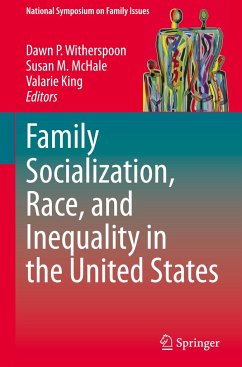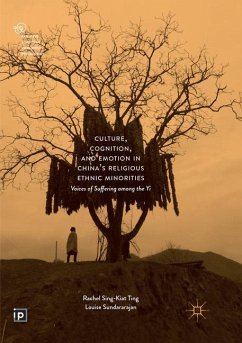
Race, Culture, Psychology, & Law
Versandkostenfrei!
Versandfertig in über 4 Wochen
246,99 €
inkl. MwSt.
Weitere Ausgaben:

PAYBACK Punkte
123 °P sammeln!
"In a diverse democracy, law must be open to all. All too often, however, our system of justice has failed to live up to our shared ideals, because it excludes individuals and communities even as they seek to use it or find themselves caught up in it. The research presented here offers hope. The abstract doctrines of the law are presented through real cases. Judges, lawyers, scholars, and concerned citizens will find much in these pages documenting the need for reform, along with the means for achieving our aspirations. The issues presented by race, ethnicity, and cultural differences are obvi...
"In a diverse democracy, law must be open to all. All too often, however, our system of justice has failed to live up to our shared ideals, because it excludes individuals and communities even as they seek to use it or find themselves caught up in it. The research presented here offers hope. The abstract doctrines of the law are presented through real cases. Judges, lawyers, scholars, and concerned citizens will find much in these pages documenting the need for reform, along with the means for achieving our aspirations. The issues presented by race, ethnicity, and cultural differences are obviously central to the resolution of disputes in a nation made up of people who have in common only their faith in the great experiment of the United States Constitution. Here the challenges are met in an original, accessible, and thoughtful manner." -Frank H. Wu, Howard University, and author of Yellow: Race in America Beyond Black and White "Kim Barrett and William George have taken on an enormous task, which is matched only by its timeliness. Cultural competence and cultural diversity pass off our lips as eternally valued ideals, but Barrett and George have brought a critical and edifying eye to thee ideas. Racism is similarly easy to acknowledge but difficult to account for in the everyday lives of ordinary people of color. What we discover in this impressive volume is not only that race and culture matter, but how they matter in the minds of people who are clients and the minds of people who attempt to serve them and in the courts of law that attempt to mete out justice. Race, Culture Psychology and the Law is essential reading for anyone with a professional or personal interest in social justice and psychological well-being." -James M. Jones, Ph.D., Director, Minority Fellowship Program, American Psychological Association "This is an extraordinary and daring compilation of cutting edge commentaries that should prove invaluable to students, scholars, and practitioners working in social work, clinical and forensic psychology, juvenile justice, immigration adjustment, Native American advocacy, and child and adult abuse. It is a quality text that tackles key topics bridged by psychology and the law with clarity, succinctness, complexity, and evenhandedness." -William E. Cross, Jr., Ph.D., Graduate Center, City University of New York American ethnic and racial minority groups, immigrants, and refugees to this country are disparately impacted by the justice system of the United States. Issues such as racial profiling, disproportionate incarceration, deportation, and capital punishment all exemplify situations in which the legal system must attend to matters of race and culture in a competent and humane fashion. Race, Culture, Psychology, and Law is the only book to provide summaries and analyses of culturally competent psychological and social services encountered within the U.S. legal arena. The book is broad in scope and covers the knowledge and practice crucial in providing comprehensive services to ethnic, racial, and cultural minorities. Topics include the importance of race relations, psychological testing and evaluation, racial "profiling," disparities in death penalty conviction, immigration and domestic violence, asylum seekers, deportations and civil rights, juvenile justice, cross-cultural lawyering, and cultural competency in the administration of justice. Race, Culture, Psychology, and Law offers a compendium of knowledge, historical background, case examples, guidelines, and practice standards pertinent to professionals in the fields of psychology and law to help them recognize the importance of racial and cultural contexts of their clients. Editors Kimberly Holt Barrett and William H. George have drawn together contributing authors from a variety of academic disciplines including law, psychology, sociology, social work, and family studies. These contributors illustrate the delivery of psychological, legal, and social services to individuals and families-from racial minority, ethnic minority, immigrant, and refugee groups-who are involved in legal proceedings. Race, Culture, Psychology, and Law is a unique and timely text for undergraduate and graduate students studying psychology and law. The book is also a vital resource for a variety of professionals such as clinical psychologists, forensic psychologists, psychiatrists, counselors, social workers, and attorneys dealing with new immigrants and people from various ethnic communities.














